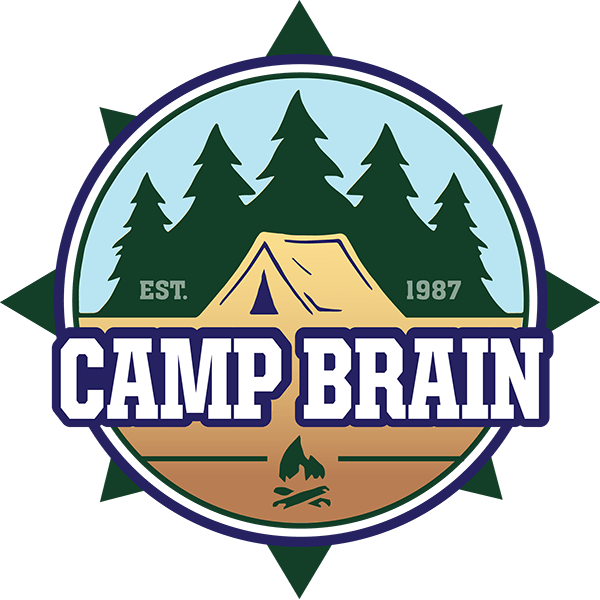The Complicated Relationship Between Brain Injury and Eating Disorders
By Ed Roth, Communications Director, Brain Injury Alliance of Arizona
It’s been established that brain injuries can cause mental health issues, such as depression and anxiety. But what about eating disorders? Anecdotal evidence would suggest so, but are anorexia, binging, and purging related to brain trauma?
The answer is, well, complicated.

Dr. Lesley Williams, Family Medicine Physician at Mayo Clinic, is a member of the International Academy for Eating Disorders. She believes a correlation can be found between malnutrition and brain health.
The Complicated Relationship Between Brain Injury and Eating Disorders
By Ed Roth, Communications Director, Brain Injury Alliance of Arizona
It’s been established that brain injuries can cause mental health issues, such as depression and anxiety. But what about eating disorders? Anecdotal evidence would suggest so, but are anorexia, binging, and purging related to brain trauma?
The answer is, well, complicated.



Dr. Lesley Williams, Family Medicine Physician at Mayo Clinic, is a member of the International Academy for Eating Disorders. She believes a correlation can be found between malnutrition and brain health.
A recent 38-month study of 107 traumatic brain injury (TBI) survivors found that 42% gained weight and 29% lost weight. While some of this data could be attributed to changes in behavior, these results strongly indicate a common denominator of recognizing the importance of providing specific nutritional care as part of brain injury recovery.
Another well-documented study followed four patients with severe TBIs and concluded that eating disorders among people with TBIs don’t resemble typical forms of anorexia and bulimia. Various factors affecting changes in eating patterns were noted, including reduction in physical disorders and use of psychotropic drugs.
One patient in this study was admitted to the clinic with a gastrostomy catheter due to his refusal to eat. Upon discharge 14 months later, he was apathetic, obsessive, and refused to eat, claiming he wasn’t hungry.
All patients presented a wide range of appetite disorders, from reduction to total anorexia. There were also changes in food preference and taste, a condition many have also reported after contracting COVID-19.
Dr. Lesley Williams, Family Medicine Physician at Mayo Clinic, is a member of the International Academy for Eating Disorders. She believes a correlation can be found between malnutrition and brain health.
“With severe malnutrition, a body can’t function appropriately, including cognition and memory,” she states. “In chronic cases of anorexia, brain scans reveal evidence of atrophy. The brain actually ages at a more rapid pace. Most younger people who are treated will improve.”
Dr. Williams recalls a nurse who had restored her weight, but not the nutrition. As a result, her brain was smaller than it should have been for her age. What’s worse is that it was irreversible, and she was unable to return to her career as a nurse.
“Eating disorders can starve the brain. With bulimia, you can see an electrolyte imbalance. Losing phosphorus can translate into difficulties with cognition, putting a person at higher risk for seizure or heart attack,” Dr. Williams says.
“I realize it’s difficult when someone can’t see potential risks and reasons for the disorder, and their health is secondary,” she attests. “Many have the vision, ‘I’ll be successful at dealing with my eating disorder or will die.’ And they’re fine with that.”
Additionally, Dr. Williams notes the most common brain-related symptoms described to psychologists involve cognition, including mood, memory loss, and inattention. The first sign is if the patient usually has trouble focusing. “It’s often hard to see damage if someone was successful beforehand,” because they have more cognitive wiggle room,” she shares. “The A+ student with an eating disorder who is now getting A’s and B’s doesn’t fire off alarms. You have to be aware of baseline functioning before seeing the difference.”
Phoenix Public Relations Executive Elizabeth Lowney can personally vouch for a link between brain injury and a change in her eating habits. She’s had five concussions, each of which brought about a range of manifestations, including amnesia and brain fog. But her most recent brain injury two years ago was different.
“I never put the two together, but for the past couple years, I don’t get hungry until dinner,” she recalls. “The concussion may have affected my Central Nervous System, slowing down my metabolism. The effects of brain injury are just so random.”
“Many people are often surprised at how greatly a brain injury can affect the overall function of the rest of their body’s systems,” says Brain Injury Alliance of Arizona Resource Facilitation Manager Brittany Sweeney-Lawson. “There’s a reason it’s referred to as ‘the mind-body connection’—a brain starved of nutrients doesn’t function as quickly, thus slowing communication to the rest of the body.”
This type of malnutrition affects people of all shapes, sizes, and economic status, but the causes for it vary. It occurs more often in lower-income households, where access to nutritious foods may be more limited, but those with higher incomes who do have access to it may purposely restrict themselves.
Misperceptions are also partially to blame. “In the media, carbs are ‘bad.’ But that’s not true. Without them, you can’t fire on all cylinders,” argues Dr. Williams. “They’re necessary for better energy levels, sleep, concentration, and reduction of irritability, even if there’s no weight change.”
What’s more, the pandemic has had a tremendous impact on people around the world, especially with the noticeable absence of normal coping mechanisms. “There was so much media focus on access to food, and that if you’re overweight, you’ll die unless you stay in your house. It’s no wonder anxiety and eating disorders shot through the roof,” Dr. Williams explains.
Due to the steadily declining COVID-19 cases, Dr. Williams believes there’s an opportunity for people to reevaluate their relationship with food. “We should cut ourselves a break and stop obsessing after gaining ‘the COVID 15’. “We got through this and should celebrate.”
She looks at it this way— “from an emotional standpoint, we’ve survived something that has impacted the world. This is a triumph. If 15 or 20 pounds is what I have to show for survival, I should be proud.”
As additional reassurance, Dr. Williams reminds, “we should realize that with smart eating and dealing honestly with potential eating disorders, our bodies will take care of this on their own. This is true whether you’ve had a brain injury or not.”
USE YOUR BRAIN TO FEED YOUR BRAIN
While there’s no such thing as a cure-all food for the brain, there are dietary choices that are superior to others. Incorporating these is a smart way to promote better brain health.
Green veggies. Kale, spinach, collards, and broccoli are full of vitamin K and Lutein that can help slow cognitive decline.
Fatty fish. These are great sources for omega-3 fatty acids, which lower blood levels of the protein that leads to Alzheimer’s.
Berries. The flavonoids which give them color help improve memory.
Dark chocolate. This, too, contains flavonoids, which also improve blood flow to the brain.
Tea and coffee. Both are well-known sources for caffeine, which can boost brain function and provide stimulation to the central nervous system.
Walnuts. An excellent source of protein and healthy fats, they may help improve memory.
Many herbs and spices. Turmeric, sage, oregano, and ginger, to name a few, are chock full o’ antioxidants, which are credited with protecting cells against damaging free radicals.
Red wine. The resveratrol found in the skin of red grapes may protect against the development of destructive plaque in the brain. Of course, moderation is key.
Whole grains. Oats, barley, and quinoa are rich with B vitamins, which are believed to preserve memory.
Eggs. Great sources of protein, vitamins B, D, and E, and choline, a micronutrient that creates a neurotransmitter that helps regulate memory and mood.
Ed Roth was raised in Chicago and has had a long and diverse career in the entertainment and media industries. He currently resides with his family in Scottsdale, Arizona, where he eats well and enjoys playing tennis all year long.
ABOUT BRAIN INJURY ALLIANCE OF ARIZONA
The Brain Injury Alliance of Arizona (BIAAZ) is the only statewide nonprofit organization dedicated to improving the lives of adults and children with all types of brain injuries through prevention, advocacy, awareness and education. BIAAZ also houses the Arizona Brain Health Resource Center, a collection of educational information and neuro-specific resources for brain injury survivors, caregivers, family members and professionals.
What began in 1983 as a grassroots effort has grown into a strong statewide presence, providing valuable life-long resources and community support for individuals with all types of brain trauma at no charge.
The Brain Injury Alliance of Arizona:
- Works with Congressional Brain Injury Task Force
- Houses Arizona Brain Health Resource Center
- Hosts Statewide Opioid Use Disorder & Cognitive Impairment Workgroup
- Has Statewide Opioid Use Disorder & Cognitive Impairment Response team with peer support, training, and family wraparound services
- Facilitates Brain Health Advisory Council
- Manages statewide Neuro Info-Line: 888-500-9165






